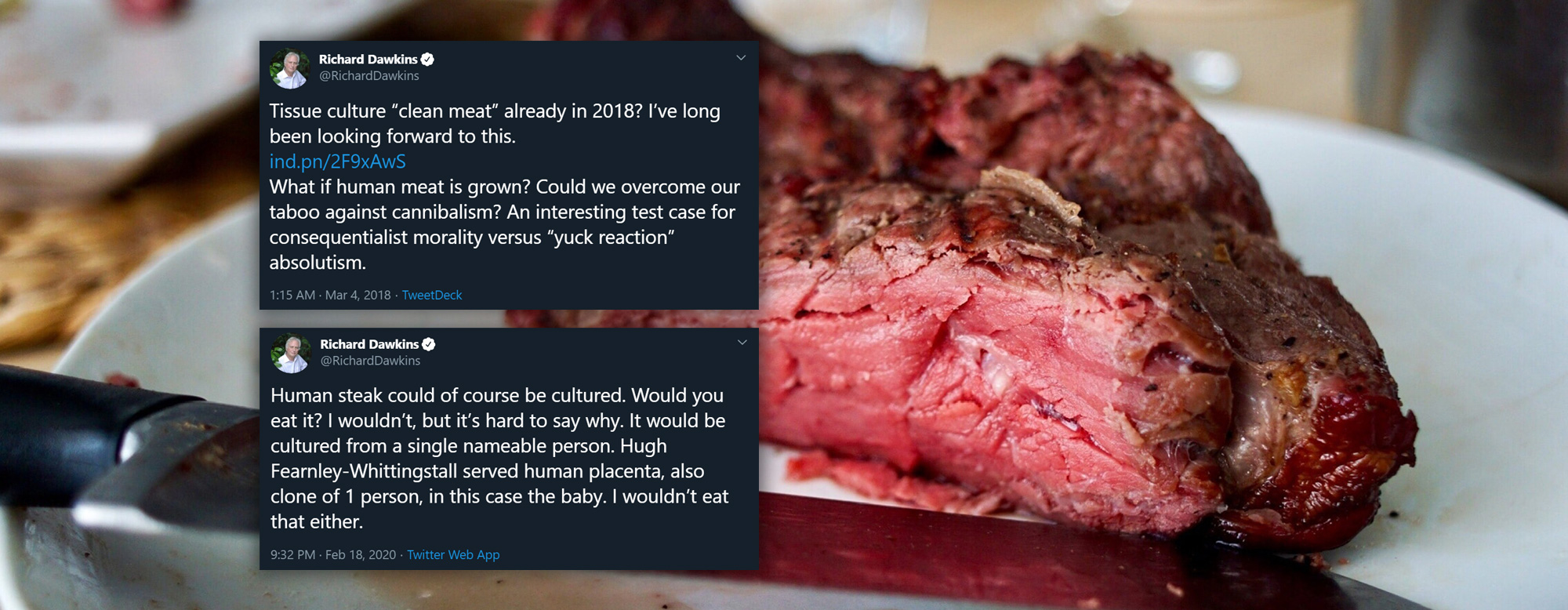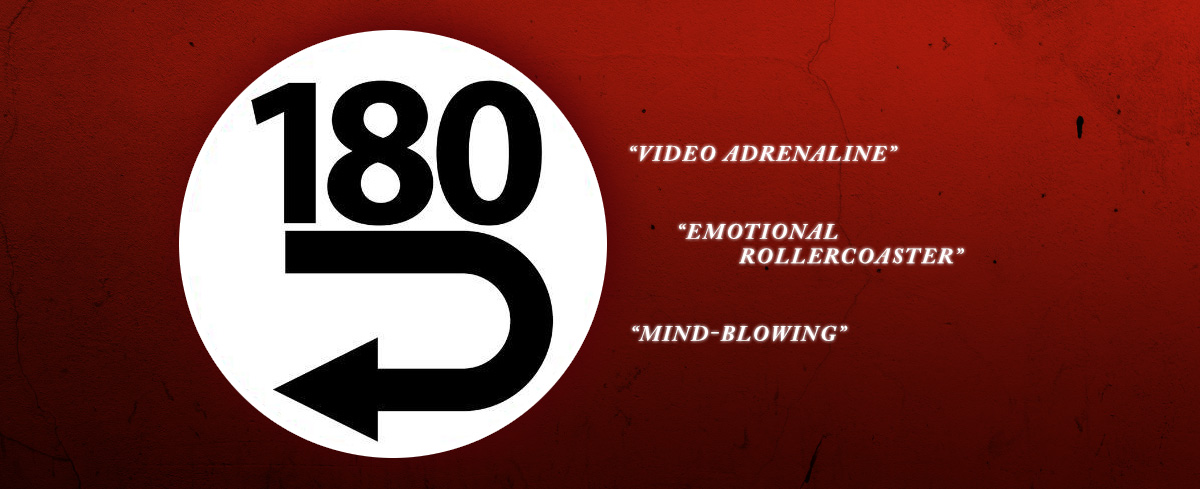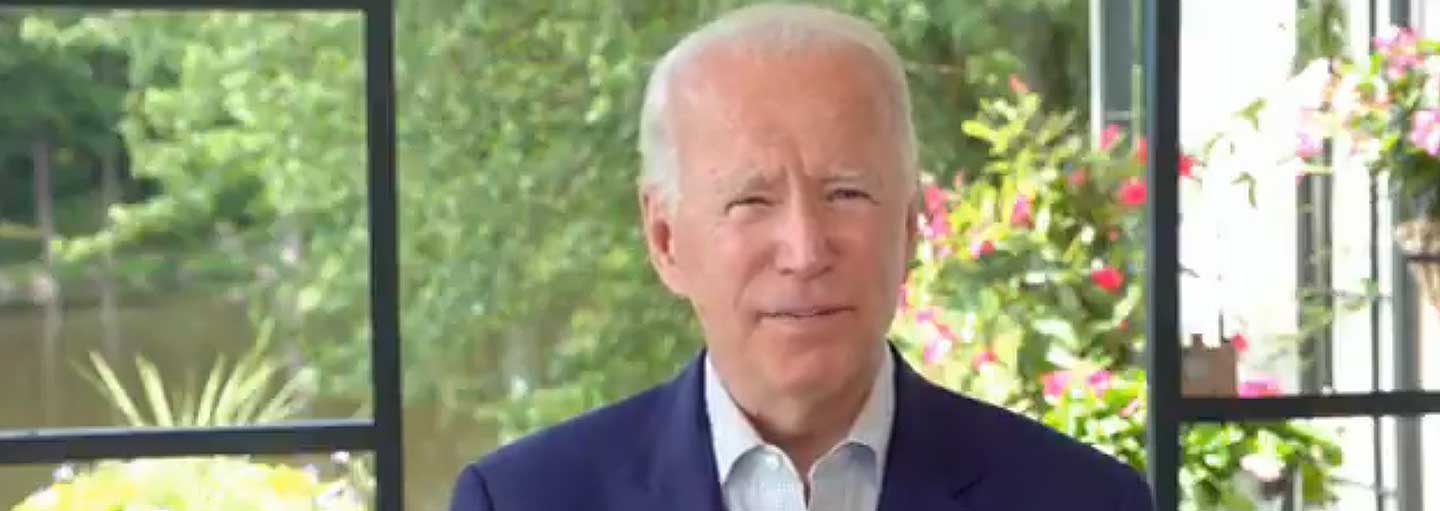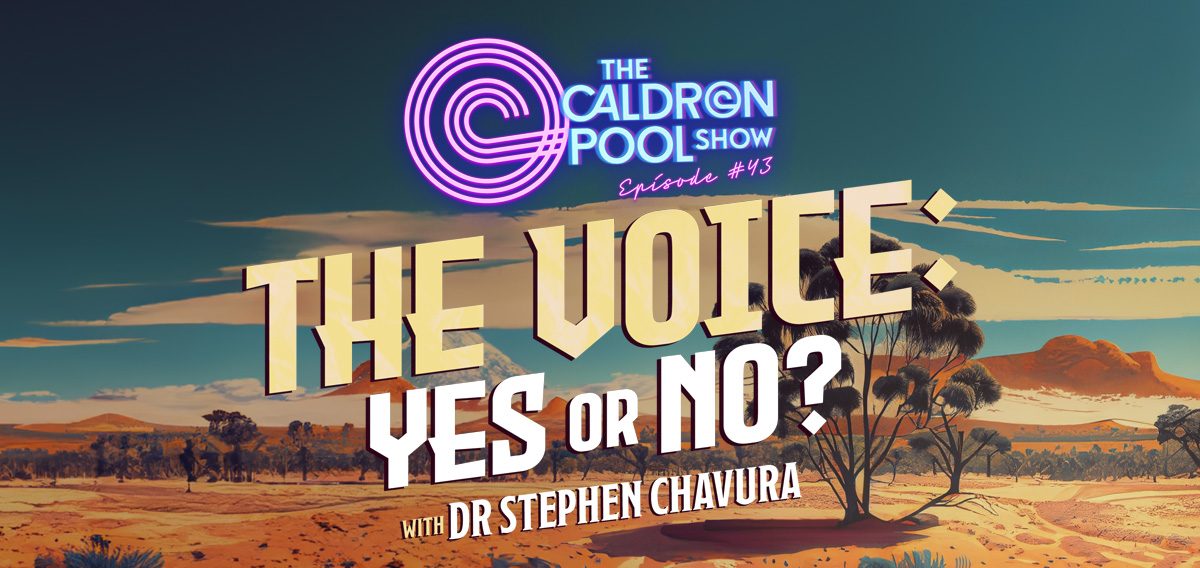Atheist Richard Dawkins told his 2.8 million followers on Tuesday that it’s “hard to say why” he wouldn’t eat human meat.
The evolutionary biologist made the admission on Twitter after sharing a Forbes article discussing the rise of lab-cultivated animal meat products.
The process of cultivating meat involves taking stem cells from the muscle of an animal, usually with a small biopsy under anesthesia. The stem cells are then placed with nutrients, salts, pH buffers, and growth factor before being left to multiply.
The piece cites the Institute of the Future in Palo Alto, who said cultivated meat could be a common sight in supermarkets in the next three years.
“These developments are very encouraging,” Dawkins said. “They promise yet another major addition to the list of ways science has found to reduce suffering in the world.”
Just hours after sharing the article, Dawkins posted a follow-up tweet, asking the Twitterverse, if they would consume cultivated human meat.
While Dawkins said he would not eat a “human steak”, he admitted he’d have difficulty justifying his decision.
“Human steak could of course be cultured. Would you eat it? I wouldn’t, but it’s hard to say why. It would be cultured from a single nameable person. Hugh Fearnley-Whittingstall served human placenta, also clone of 1 person, in this case the baby. I wouldn’t eat that either.”
Human steak could of course be cultured. Would you eat it? I wouldn’t, but it’s hard to say why. It would be cultured from a single nameable person. Hugh Fearnley-Whittingstall served human placenta, also clone of 1 person, in this case the baby. I wouldn’t eat that either.
— Richard Dawkins (@RichardDawkins) February 18, 2020
Dawkins’ reference to Fearnley-Whittingstall is a throwback to a 1998 episode of Channel 4’s program, TV Dinners, in which the celebrity chef cooked and served a placenta.
FaithWire noted this isn’t the first time Dawkins entertained cannibalistic ideas. In 2018 he asked his Twitter followers if it was possible to “overcome our taboo against cannibalism.”
“Tissue culture ‘clean meat’ already in 2018? I’ve long been looking forward to this. What if human meat is grown? Could we overcome our taboo against cannibalism? An interesting test case for consequentialist morality versus ‘yuck reaction’ absolutism.”
Tissue culture “clean meat” already in 2018? I’ve long been looking forward to this.https://t.co/p41NR3NEZn
What if human meat is grown? Could we overcome our taboo against cannibalism? An interesting test case for consequentialist morality versus “yuck reaction” absolutism.— Richard Dawkins (@RichardDawkins) March 3, 2018
Dawkins is, of course, simply attempting to act consistently with his inconsistent worldview. On the one hand, he claims both humans and animals are equal in that they both have no inherent value or purpose. Indeed, the entire universe, he says, has “no design, no purpose, no evil, no good, nothing but pitiless indifference.”
On the other hand, Dawkins has at least some God-given moral restraint towards cannibalism. Although he admits he would not eat human meat, his worldview cannot allow for any real moral difference between consuming human steak and consuming animal steak. Hence, his inability to justify why he’s prepared to eat one but not the other.
Atheism breeds a world of inconsistencies, but that’s the least of our troubles. What’s disturbing is that atheism is often portrayed as the default, secular, non-religious, and unbiased position in education, government and public life, and yet atheism has no meaningful basis for ascribing value to human life.
The right to life is the basis of all human rights, and yet we fail to see the potential damage of propagating a worldview that undermines that basis. Do we wonder why the world is the way it is? If the Christian worldview lifted much of the world out of barbarism, atheism, with its inconsistencies and arbitrary moral ideas, will be sure to take us back.


















